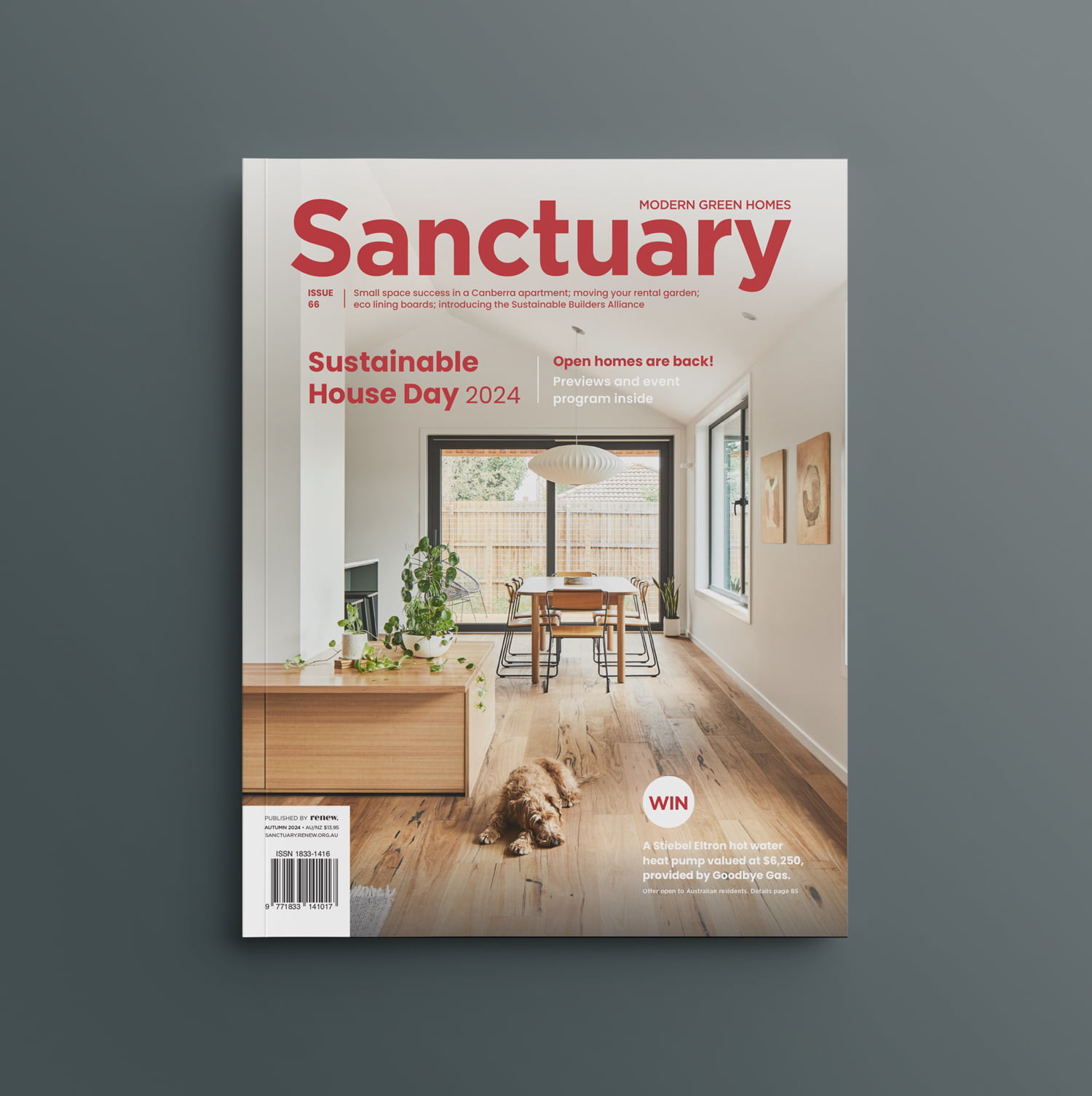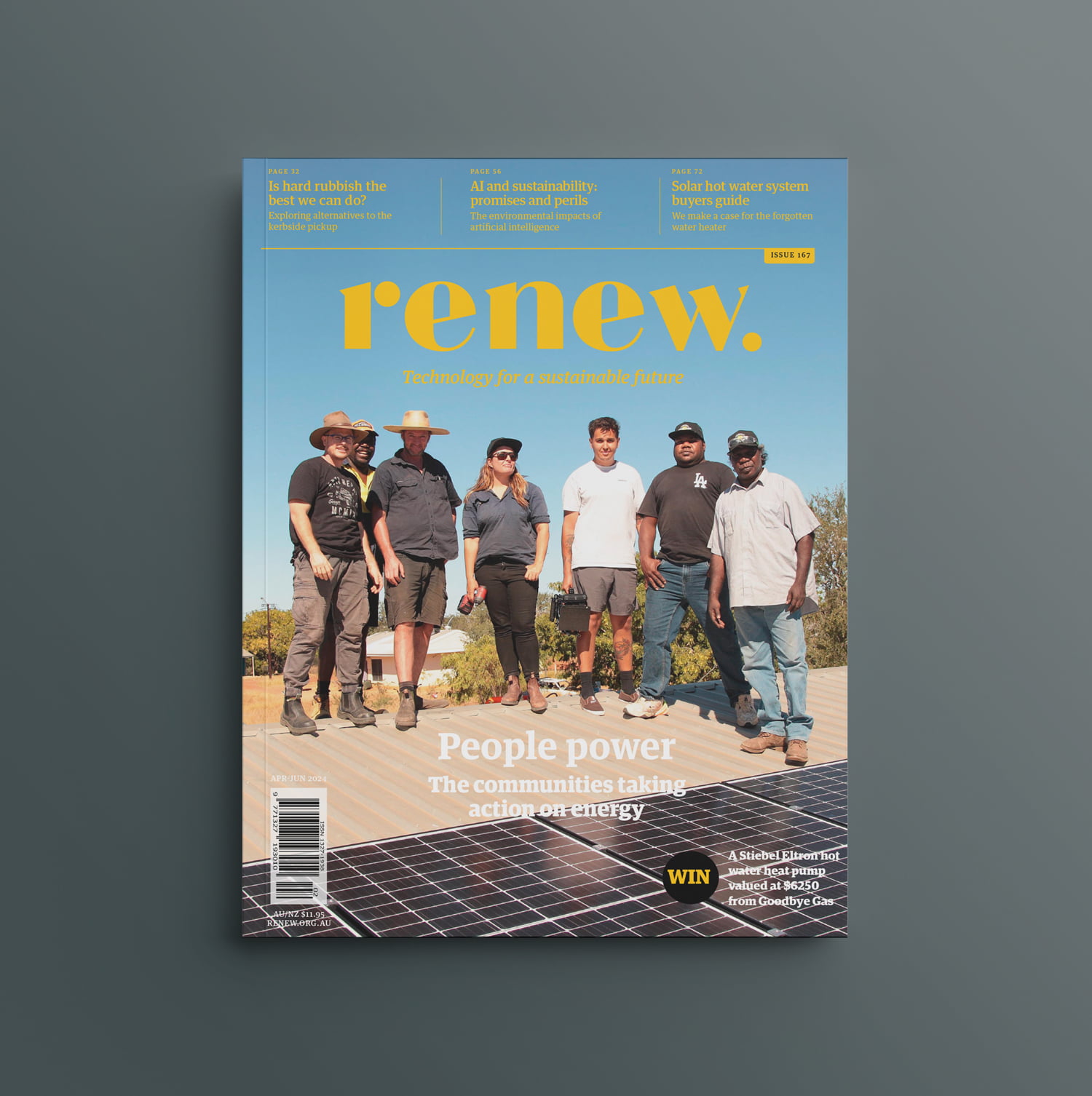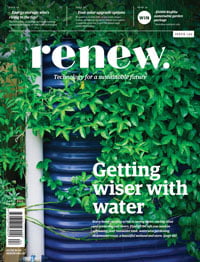Students get behind an infrared camera
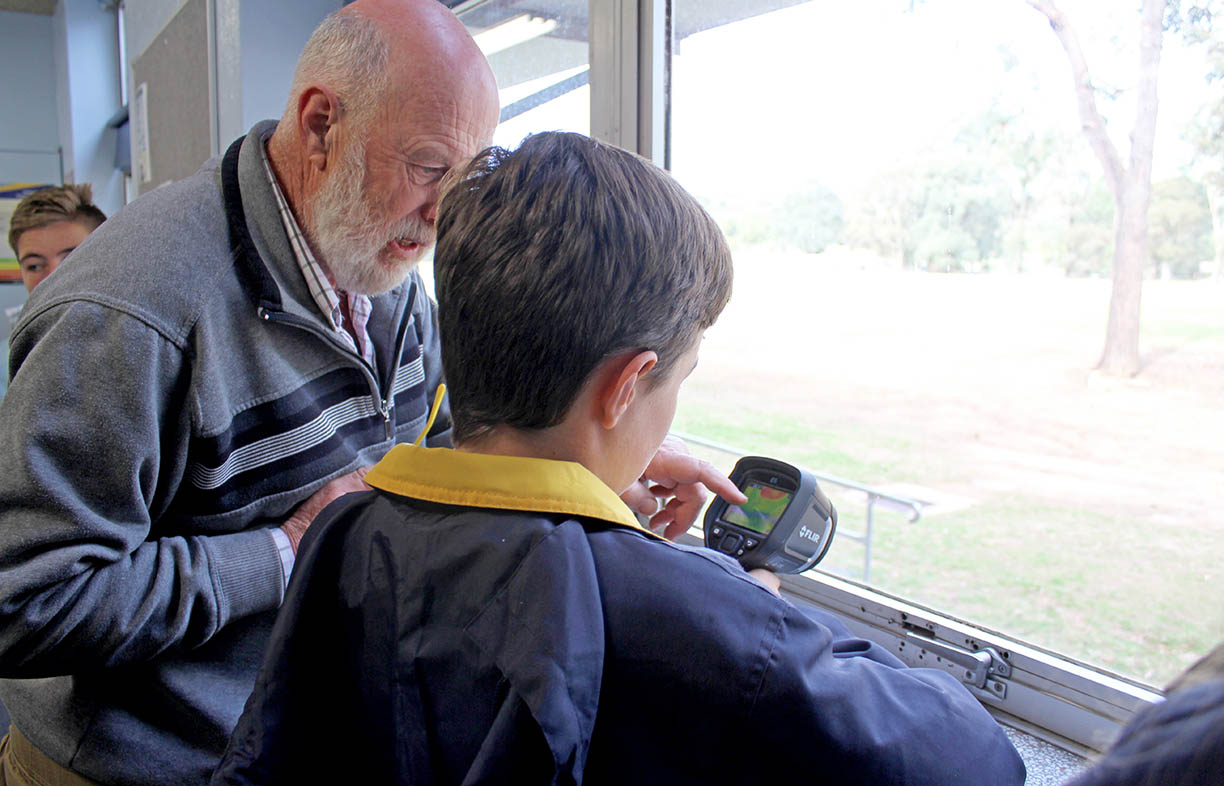
These high school students learnt how to test for air leakage and become proficient DIY-installers—leading to great results for the homes involved, and benefits for the whole community.
Inspired by a 2015 CSIRO study, the small rural community of Junee (pop. 6300) in the Riverina has recently implemented a program of air leak testing, sealing and energy efficiency upgrades. Specifically targeted at low-income residents, the program’s initial results are in and show excellent reductions in air leakage and energy bills—and a sense of empowerment for the residents involved. And it was all run by student teams at Junee High School.
Called the Empower Project, seven year 9/10 student teams worked under the guidance of their teachers and Junee Community Power, a local community energy group, during a 10-week pilot that’s made an amazing difference to the energy efficiency and resilience of the local community.
What the students did
The ‘Test’ team worked on leak testing. Students were trained to perform a blower door test using equipment donated by Charles Sturt University, Wagga, where a fan is used to both suck air out of a building and then blow it back in to calculate an air leakage rate. They then used infrared thermal imaging cameras to locate the air leaks.
The ‘Repair’ team worked on fixing the leaks using readily available (local hardware store), low-cost materials. One of the most common fixes was to apply door seals and strips along the base of doors. They also replaced seals around windows and used ‘No More Gaps’ sealant along skirting boards, fascias and where there were gaps in the floorboards.
The thermal images showed that a major loss of heat in winter was through evaporative air conditioning vents that couldn’t be fully closed. The students considered using plastic wrap to cover the vents, but didn’t want to use single-use plastic. Instead, a local painter showed them how to cut wooden squares to replace the vents, which can be easily installed in autumn and removed in spring.
The ‘Recommendations’ team promoted upgrading of appliances and other low-cost energy-saving actions. Using a kit from the local library, this team helped householders test the energy use of their appliances. They also used their computer skills to assist concession card holders to apply for a substantial government-funded discount for energy-efficient replacements of refrigerators and TVs. The ‘Advertising’, ‘Website’, ‘Film’ and ‘Project reporting’ teams helped promote the project and share the findings in the media and on the website they created, now an ongoing community resource for the town.
Air leakage results
The students tested classrooms, homes, a senior citizens’ hall and motel rooms for air leaks. In total 20 buildings were tested and eight have been retested after sealing—in some cases multiple times as the retesting often identified minor air leaks that showed up after the major leaks had been identified and sealed. The results of the completed eight buildings are shown in Table 1. The other buildings are currently being retested.
The initial results in Table 1 show that the sealing/partial sealing of air leaks contributes to significantly improved air change rates, which should provide significant benefits for energy efficiency. CSIRO results suggest that a change from 15 to 9 air changes per hour (ACH) will mean a house will maintain its heat/coolth for three hours instead of 1.5 hours once the heating or cooling is turned off. The Junee homes typically had greater leakage problems than those in the original CSIRO study, possibly due to the age of the buildings.
Local hall now used more!
The Junee senior citizens’ hall was one of the buildings draughtproofed. Before this project, the hall was used no more than two days per week as it was too cold in winter and too hot in summer for more frequent use without high costs. However, since the students’ work on the hall, the comfort level has improved so much that the senior citizens have decided to remove the gas heating and install a split system air conditioner. This will remove the gas connection charges, saving $260 per year, and will give year-round comfort so they can use their hall more frequently, which in turn means increased social interactions.

Empowered households
An important observation has been how empowered householders became during this process. When they were present during the initial air leak testing, they not only saw where the air leaks were, they also learnt about behavioural changes that can save energy and improve the comfort levels in their home, such as keeping bathroom doors closed to reduce heat loss through bathroom exhaust fans and louvered windows. Using insulation offcuts to reduce heat loss via unused chimneys in old fireplaces also made a noticeable difference to the comfort they experienced.
Knowhow needed for appliance replacement
The NSW Office of Environment and Heritage offers eligible householders (such as concession card holders) an energy-efficient replacement for certain whitegoods at a significant discount—40% for fridges and 50% for TVs.
The awareness-raising of the Junee Empower pilot project has meant over 40 households have applied to replace their electrical appliances.
The students discovered a strong need for both promotion of this program and assistance with the application process. While many concession card holders were suffering from ‘bill stress’, many didn’t know about the program. In fact, several eligible householders had already replaced appliances—mainly fridges—and were annoyed at having missed out on the opportunity for financial assistance. In some cases this had resulted in them buying a less energy-efficient appliance due to budget constraints.
The students also found that there were no service providers in Junee offering help filling out the sometimes complex forms. The students observed many cases where concession card holders, in particular the elderly, struggled to use the internet to apply, if they had access to the internet at all; many found telephone communication with bureaucracies just as problematic.
Inspired by the students’ work, the Junee Community Centre has offered to work with the support agencies in Junee to assist concession card holders apply for the appliance replacement offer in a more coordinated way—a pleasing result!
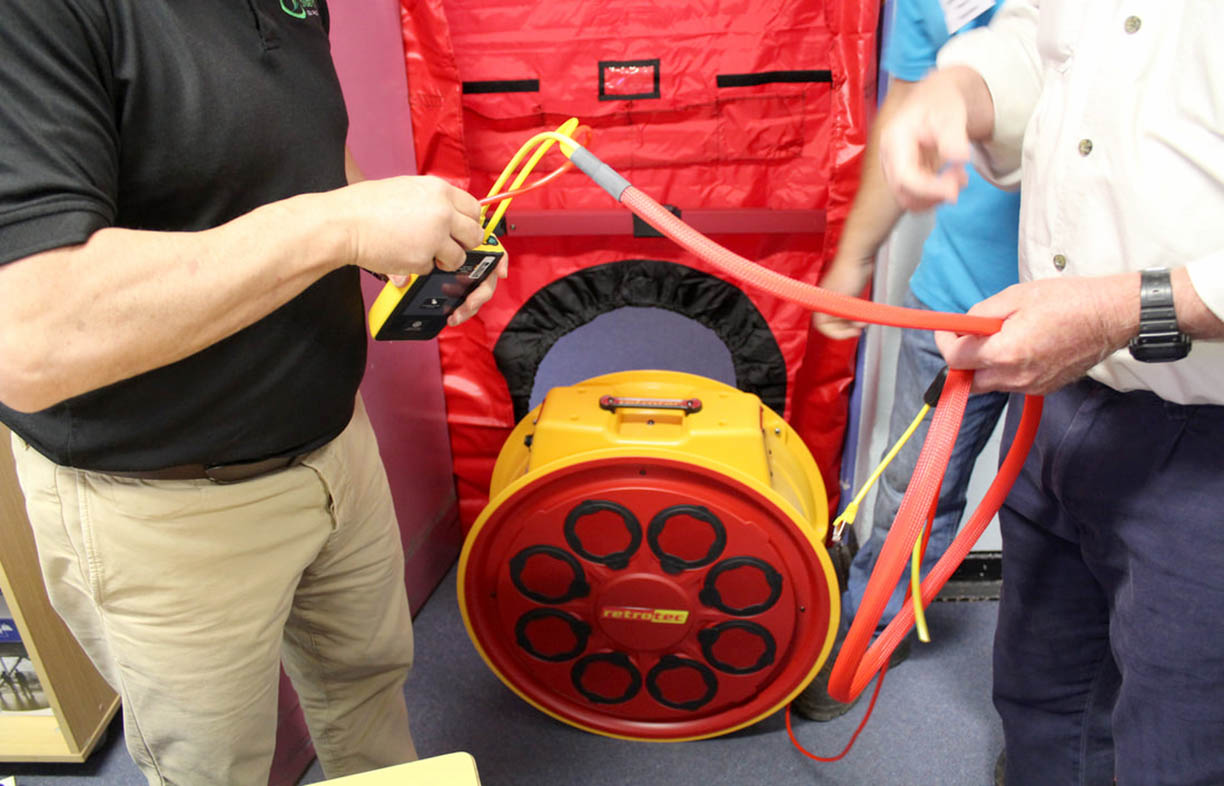
Benefits—more than financial
Based on the sample of homes to date in this project, repair costs were between $210 and $250 per house. The extent of heating and cooling savings will be measured in future energy bills. There will also be savings in appliance running costs after installation of the more-efficient fridges and TVs.
Junee has the fifth highest rate of electricity disconnections in NSW due to the inability of low socio-economic households to pay energy bills. If this program can be maintained, this high level of energy poverty in Junee could be significantly reduced.
And there are many benefits beyond the financial. While it’s hard to measure, the interactions of students with community members including seniors proved highly beneficial in this small, rural community.
Don’t undertake draughtproofing if you have an unflued gas heater as, in a tightly sealed home, the gases from such appliances can present a carbon monoxide poisoning risk. With other gas appliances, special care needs to be taken including regular servicing and cooktop extraction to outside. See www.bit.ly/2MCUjEv
- 2015 CSIRO study on testing air tightness of Australian homes
- 2015 AIRAH study on improving Australian housing envelope integrity
- Empower Project website
- Video showing setting up the blower door test
Related articles
 Efficient homes
Efficient homes
Building for a changing climate
Are we building homes for the future, or for the past? Rob McLeod investigates how climate change is impacting home energy ratings and the way we build our homes.
Read more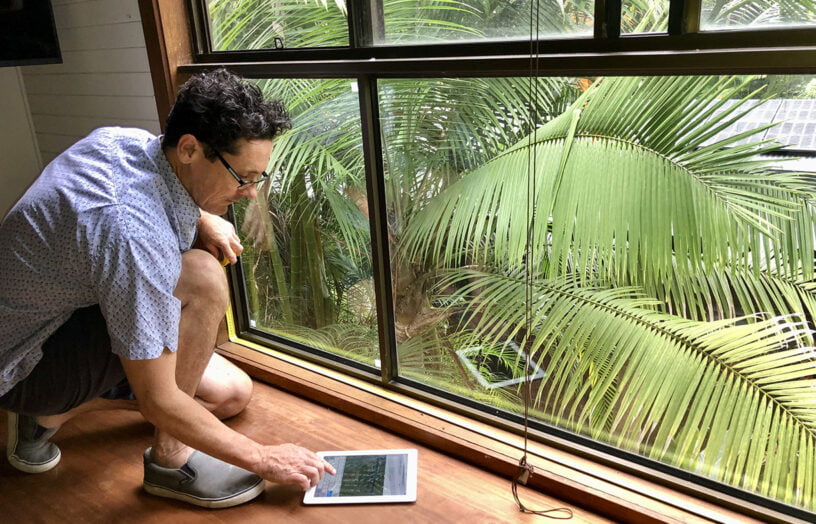 Efficient homes
Efficient homes
So you want to be a home energy assessor?
Renew’s sustainability researcher Rachel Goldlust shares what she’s learnt.
Read more Products
Products
Product profile: Zero petrol
We’ve covered a few electric scooters over the last few years, and a recent entrant, Benzine Zero (Italian for zero petrol) has added some nice looking offerings to the market.
Read more